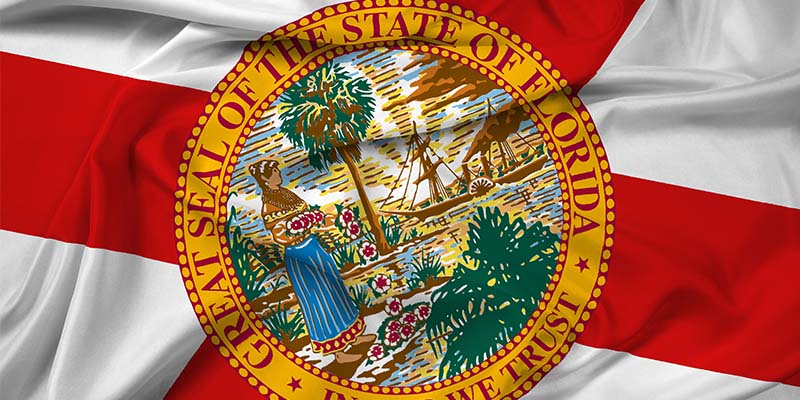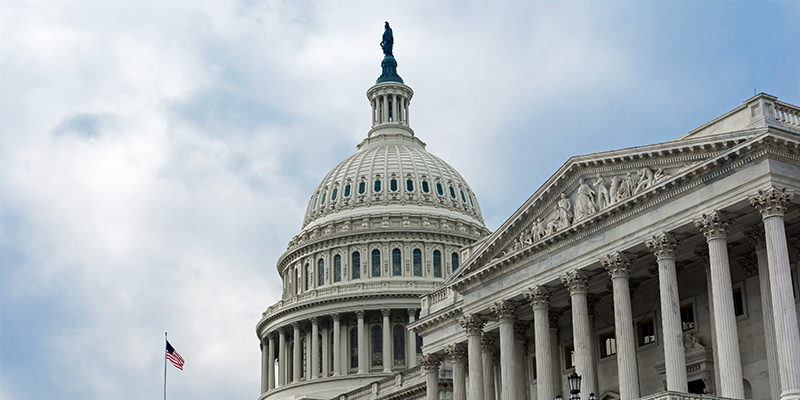The Florida Legislature will begin its 2020 session on January 14. When it does, NAIOP of Florida is prepared to hit the ground running, delivering a to-do list for lawmakers that would boost the economy and support the growth of commercial real estate.
Last week, representatives from all five of NAIOP’s chapters in the Sunshine State – Central Florida, Northeast Florida, Northwest Florida, South Florida and Tampa Bay – participated in a state summit to discuss legislative priorities for the coming year. The meeting highlighted NAIOP’s influence in Florida and drew two leading members of the state legislature to Orlando to speak.
Attendees heard presentations by State Senator David Simmons, president pro tempore of the upper house, and House Representative Mike La Rosa, chairman of the commerce committee. NAIOP members also discussed in-depth the issues they will prioritize in 2020. These include:
Enacting the FAST Act.
This proposed law would allow developers to better plan their projects by forcing permit-granting government entities to meet deadlines once an application has been certified as complete. That seems simple enough, but too often it doesn’t happen.
When governments miss deadlines, they delay the approval process. In this year’s legislative session, Representative Scott Plakon, (R-Longwood), filed the FAST Act, a bill that would improve the construction climate by incentivizing local governments to meet their own permitting deadlines. If a government entity misses its own deadline, the fees it could collect would decline. A version of the FAST Act passed in neighboring Georgia in 2019, and Florida lawmakers should take it up again next year.
Phasing out the Business Rent Tax.
Florida is the only state with a business rent tax; this levy costs businesses $1.7 billion a year. The repeal of the tax outright could create up to 185,000 jobs and $20 billion in economic impact in Florida. If lawmakers aren’t ready to go that far, just a 1% reduction in the tax would result in $286.9 million saved annually by Florida businesses. Reducing the business rent tax would spur Florida’s economy and make it more competitive with neighboring states.
Removing the witness requirement for commercial leases.
Florida has strict witness and notarization requirements that make it difficult for out-of-state tenants to be involved in transactions. For example, many commercial real estate documents must be signed in person in Florida, according to state law. NAIOP of Florida has taken the lead in advocating to remove any requirement to have witnesses for commercial leases, regardless of the lease term or for specified durations. This would make it easier to invest and do business in Florida.
Maintaining a commercial building representative on the Florida Building Commission.
This year, some lawmakers proposed a measure that would have removed the commercial representative from the Florida Building Commission. That attempt failed, but may be revived in the next legislature. NAIOP of Florida will work to protect current law, which mandates that the commission include one member from the commercial real estate industry. Our organization will also submit our own candidates for consideration.
Improving the state fire code.
Current Florida fire prevention code requires in-building coverage for fire department radio signals and two-way communications. Under this statute, though, high-rise buildings are exempt from these requirements until January 1, 2022. NAIOP of Florida is supporting proposed legislative language that would push back the fire code upgrade for existing and new high-rises in order to give owners more time to comply with the law.
Reining in excessive linkage fees.
Some local governments across Florida are targeting commercial real estate by applying excessive linkage fees to new projects. Essentially, they are charging developers a tax so the local government can build a fund to support affordable housing or other, similar programs. The state legislature should eliminate linkage fees that are not tied directly to commercial real estate projects.
While in Orlando, NAIOP members also discussed and approved bylaws for the NAIOP of Florida Political Action Committee. This PAC will allow the state alliance to support politicians and other statewide leadership entities who will vote for policies that help commercial real estate provide the places where people work, live, shop and play.
The year 2020 is quickly approaching, with presidential candidates already engaging in debates and holding campaign rallies across the country. In Florida, NAIOP is prepared for 2020, and ready to work to improve the political and economic climate for all our members.














